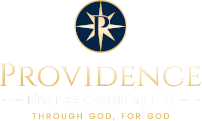3 Ways to Boost Savings
Boosting Savings: What can you Do?
Everyone should save as much as possible in today’s uncertain economy. It might seem pointless when you look at the average APY paid by banks, but the Fed increasing rates helped savers while hurting borrowers.
This means you should pay off all high-interest debt as soon as possible since consumer rates will only get higher. Every penny you pay toward consumer debt is an opportunity cost for saving.
Right now, everyone should save as much as possible. Savings accounts are low risk and yet can earn compound interest, helping you reach your personal finance goals.
Boosting your Savings
It’s apparent that boosting your savings is the best way to ensure you have money safely set aside for emergencies and financial goals, but how do you make the most of your accounts?
With banks paying low rates, it hardly pays to put your money in your local bank’s savings account, but here are three simple ways to boost your savings and reach your personal finance goals.
- Make it automatic from every paycheck
Take the thinking out of saving and set up automatic deposit with your employer. If you already have direct deposit, send a portion of your paycheck to your savings account rather than the full amount to your checking account.
This method ensures you save before you spend. In addition, if you contribute to your savings account each payday, you have more opportunities for compounding interest.
- Invest in high-yield savings accounts that are FDIC insured
High-yield savings accounts aren’t the accounts you’ll find at your local bank. Instead, online banks offer them, such as Ally or Marcus by Goldman Sachs.
It might feel strange to have an account at an online only bank, but you can earn an average of 1.5% APY versus 0.01% at a local bank.
Make sure any bank you choose is FDIC insured and you meet the minimum balance requirements to earn the highest APY.
- Consider Buying I Bonds from Uncle Sam
I Bonds are government-backed bonds. This means low risk. You can purchase up to $10,000 each year. They pay two interest rates, a fixed rate and an inflation rate. The inflation rate adjusts every six months (May and November) based on the Consumer Price Index. The fixed interest rate never changes.
You must hold onto I Bonds for at least 12 months before cashing them in, and currently, the rate of return is 9.62%. This can change in November based on the inflation news at the time.
Final Thoughts
Boosting your savings means adjusting how and where you save as well as automating the process so you don’t overlook your need to save. In addition, the more money you have set aside, the easier it is to handle emergencies, whether something as significant as a pandemic or a personal crisis that might have set you back.
Need help in your financial journey, set up a free consult and let’s talk about your goals and putting a plan together to achieve them.
